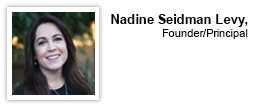
Preparing for the Unexpected
As Professional Organizers, we pride ourselves on having our “ducks in a row” in most, if not all, areas of our lives. We aim to be model citizens with regard to walking our talk about time management, productivity, organizational systems, efficiency and so on.
Despite our supernatural, innate skill sets, we are human, occasionally we forget to dot all of our “I’s” and cross all of our “T’s”. The rest of the world might find this bit of news to be entirely SHOCKING since we take great pride in excellence and precision! The point is that you just never know what surprises await you, but you have to do your best to be ready for the unknown. Some things are out of your control, but others can be prepared for if you think ahead.
Life happens and so does divorce, death, dissolution of partnerships, bankruptcy, identity theft, probate, audit, flood/earthquake/fires, and much more. At some point in our lives, it is highly likely that we will be faced with unexpected situations that require us to suddenly be on top of the game with regard to locating and understanding various documents, systems, financial account information, passwords, insurance policies, etc. And while it may feel safer or easier to sit in a place of denial and not have to deal with any of these “uncomfortable” situations, you will kick yourself for certain if you are the one that is not adequately prepared.
Statistically speaking, women are more likely to fall victim to being ill prepared than men by a ratio of 3 to 1. Experts will tell you that the very worst time for making decisions is when decisions have to be made. In other words, we need to plan for events that we don’t want to happen so that when they do we are not making uninformed decisions but rather we are simply executing a previously developed, rational plan.
The first step to developing a plan that will not leave you financially vulnerable is to acknowledge your vulnerability and to, in fact, define it. Start with a checklist of all the elements requiring familiarity, updating and management. You can find such a checklist at http://www.usa.gov/Topics/Money/Personal-Finance/Managing-Household-Records.shtml for home/personal or at http://www.businessmanagementdaily.com/glp/17590/the-office-organizer-10-tips.html for your business.
Next, you will want to concentrate of information gathering. This is a tedious process and one that you may want to consider hiring competent support (such as interns) to help you get through the process.
Once you have gathered the above, it is important to have all of the information filed BOTH physically and digitally and to utilize a document locator or document management system. This will enable your to find what you are looking for when you need it. Consider advanced storage solutions for your electronic data through the use of Cloud storage or file sharing applications such as Drop Box. Consider document locator or management systems such as ColumbiaSoft’s Document Locator software or many others. See: http://document-management.findthebest.com/
Don’t forget specialty data such as personal health information or passwords/access data, vendor lists or employee personnel files, and so on. All of these documents can be digitized and stored for use and retrieval at times when you typically would expect them to be lost or destroyed.
In business, we call it a Business Continuity Plan (BCP); For our families, we call it Financial Planning. No matter what it is called, we know it is essential to our ability to pick up the pieces when our world has come shattering down – through one set of circumstances or another.
Suggestion: allocate some strategic time each week to looking at different aspects of your business and asking yourself what could go wrong. Make a list of each scenario and then decide what you would do to prevent it, reduce the odds of it happening and reduce its impact if it does happen. Then look at that list and work on the most important things. You can't prepare for everything, but the more things you think about now, the more you'll increase your odds of long-term survival.

